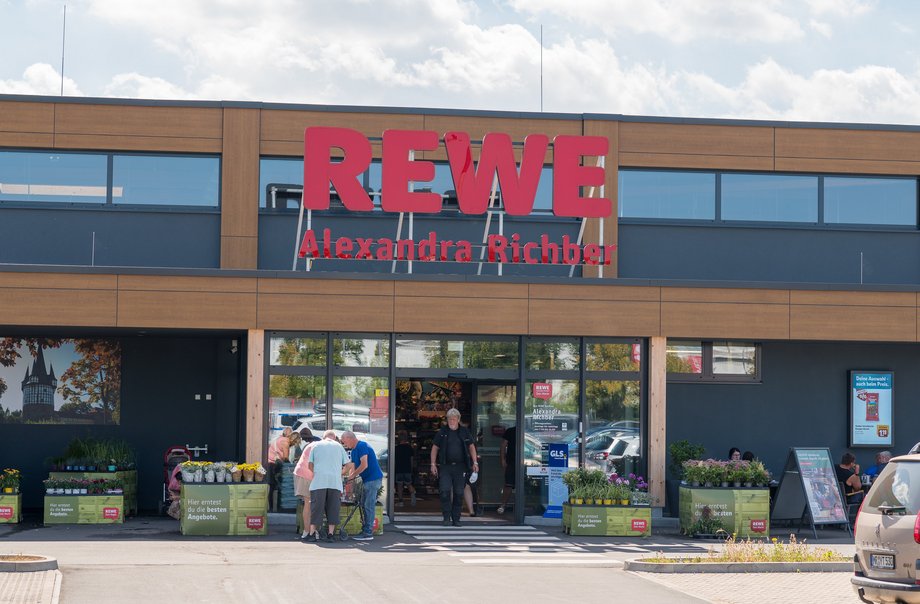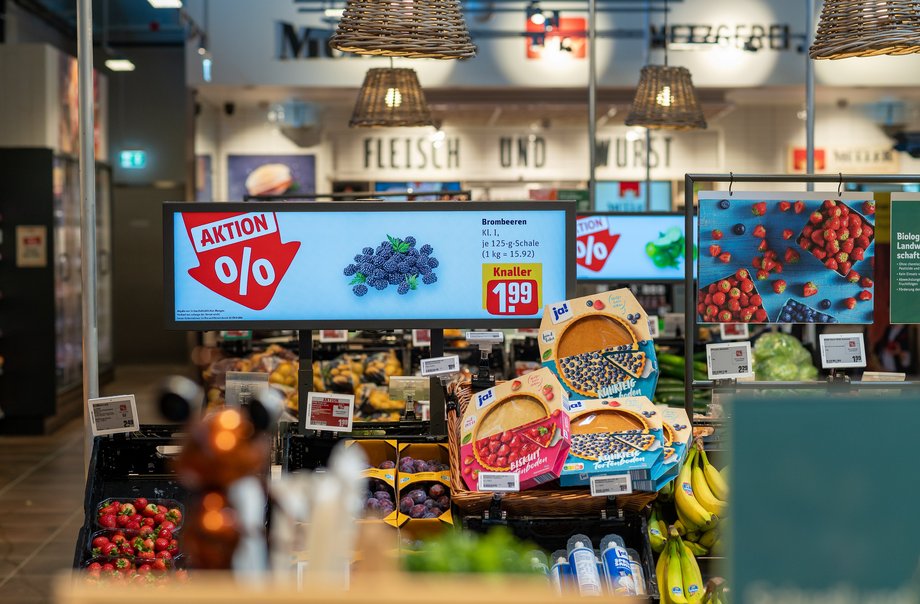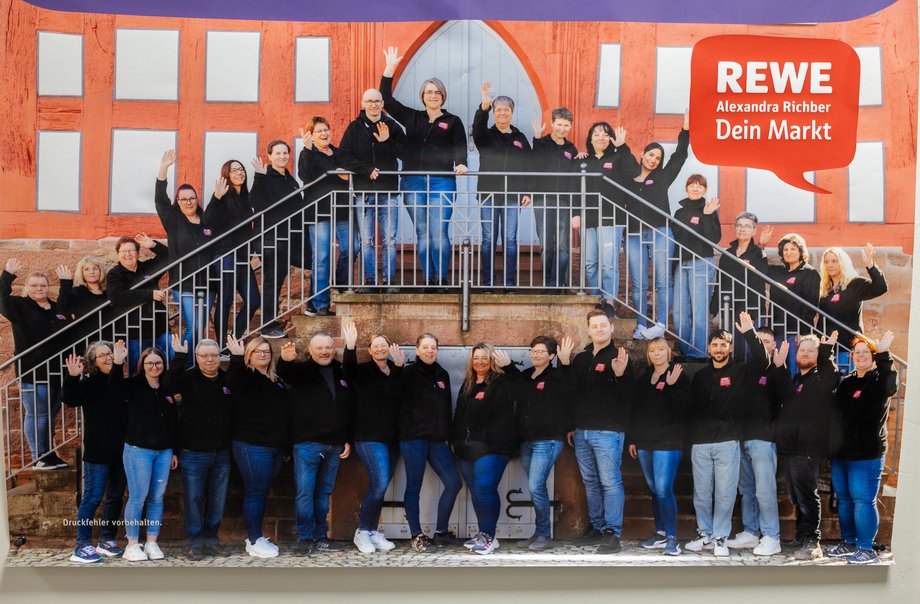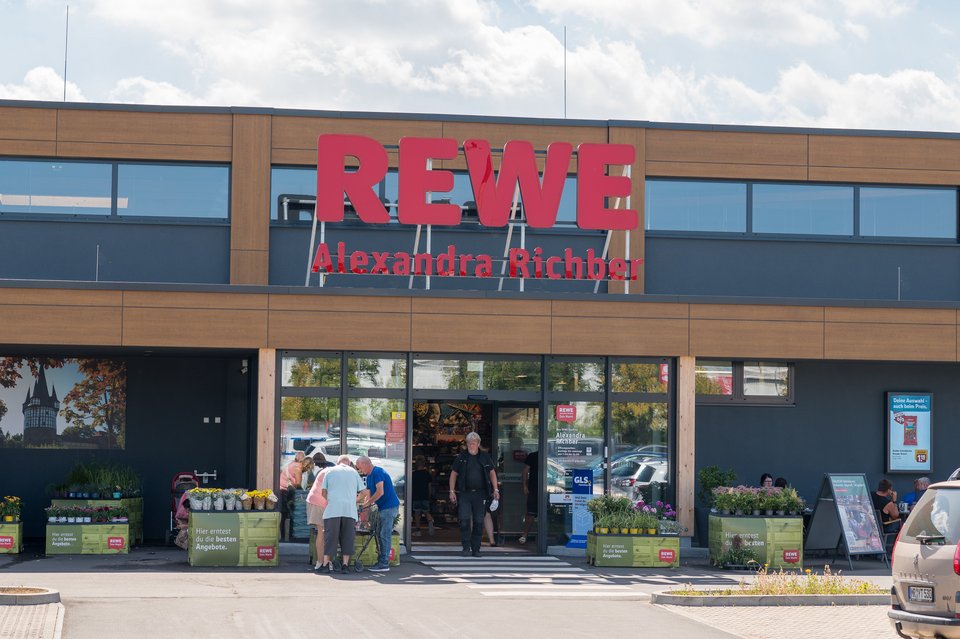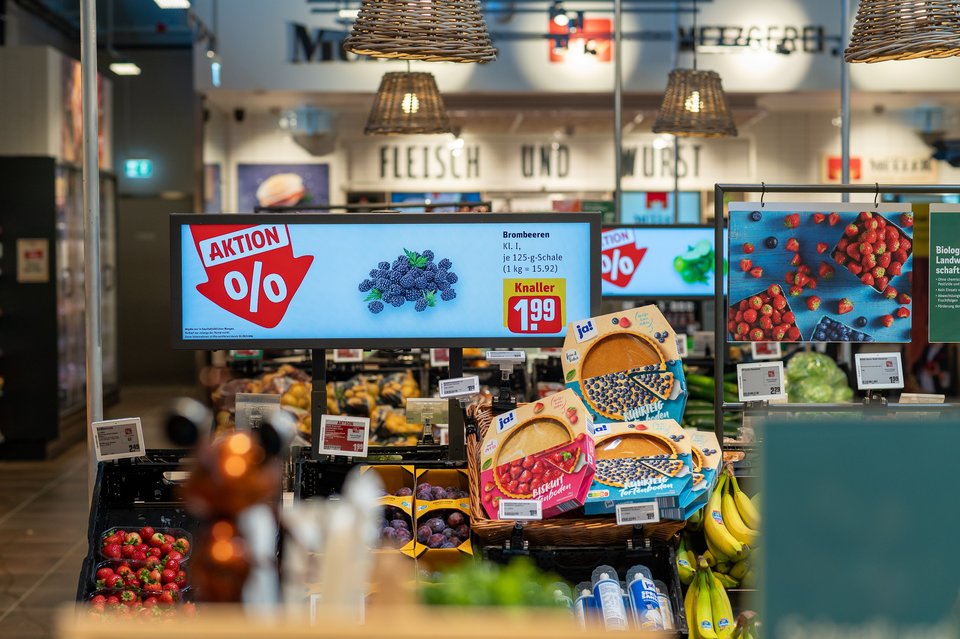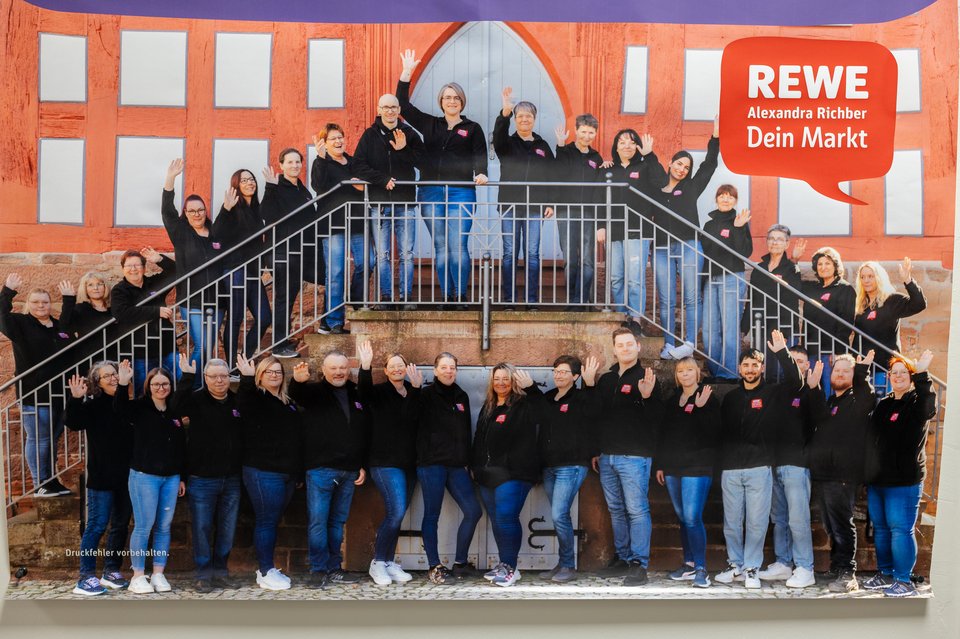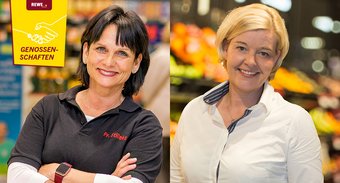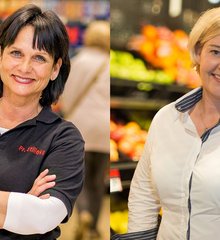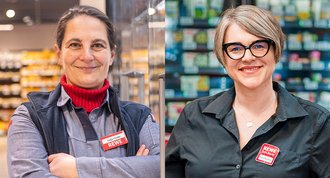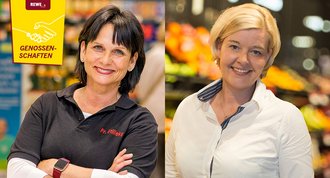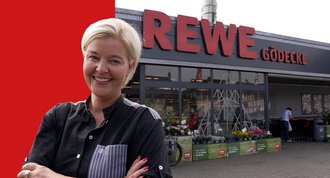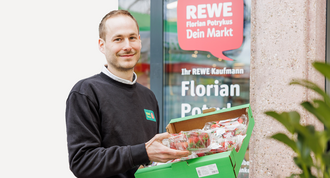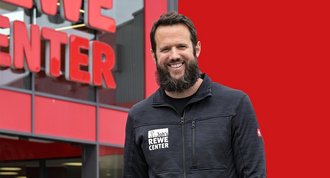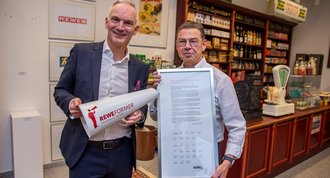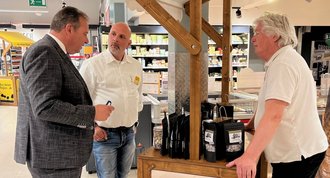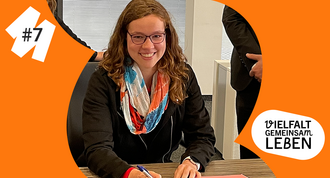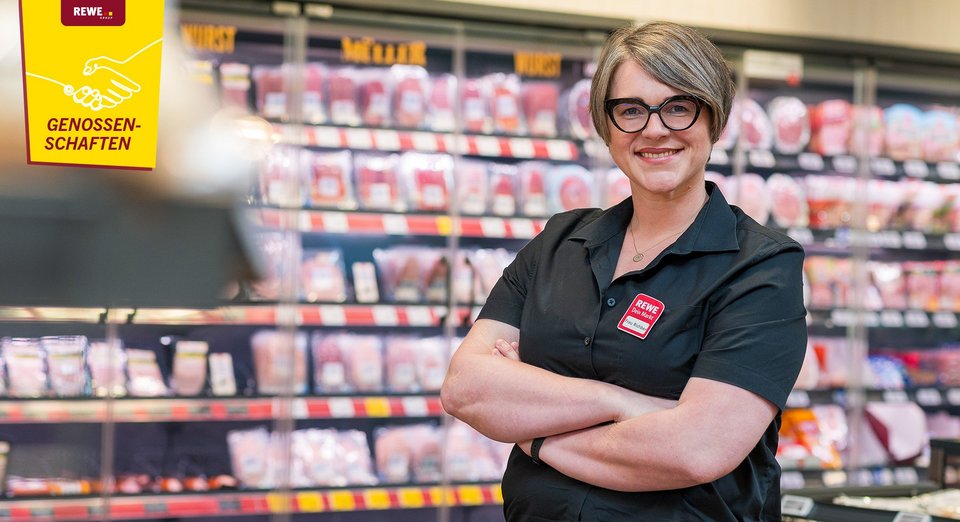
"You did your A-levels and you're learning to be a shop assistant?" Alexandra Richber had to listen to this question, an expression of incredulous amazement, several times. But she was not deterred. Today, she runs two REWE stores as a self-employed saleswoman.
Alexandra Richber describes her career as a "classic how-it-should-be career". High school diploma, mini-job at REWE, high school diploma programme with training as a business administrator and subsequent distance learning course to become a retail specialist. At the same time, as part of the Senior Managers Development Programme (FEP), she took part in "all the junior staff programmes offered by REWE."
Her training company, the REWE supermarket in Homberg-Ohm, left a lasting impression on her. To this day, she maintains a trusting and friendly relationship with its owner, REWE businessman Michael Fricke. Alexandra Richber then gained plenty of practical experience in several REWE stores, including a management branch.
Formative experience in a small store
"It was a very small shop and you had to do everything there. But this experience was important, I recommend it to everyone, because you actually learn how to work in small stores," she recalls. In general, it was valuable to get to know different stores and retailers and therefore also different management cultures. And realising what you don't want to do can also influence the decision on which direction your career should take. In Alexandra Richber's case, it was a detour into field sales. "That was definitely very exciting, but at the same time I realised that it wasn't for me. During that time, I made the decision to become self-employed." When the REWE store in Neustadt (Hesse) became vacant, Richber applied for the job - and was successful.
Responsibility for 90 employees
In addition to the store in Neustadt, the 38-year-old runs another one in Alsfeld, around 15 kilometres away. Both stores were recently refurbished and reopened in a different building within six months. A demanding, challenging time. But, says Alexandra Richber: "The biggest challenge today is taking responsibility for the 90 employees. I try to please everyone. It's not always easy, for example when it comes to staff scheduling."
Another challenge is dealing with the liabilities associated with starting out on your own: "Mentally, you don't see any goods in the shop yet, and then you wake up and suddenly find yourself in debt. You have to be able to deal with that. That was a difficult decision for me, because I'm more of a security person."
However, the knowledge that she had a large cooperative behind her strengthened her resolve to venture into her second store: "From my time in the field, I knew that if you get into a predicament through no fault of your own, you still have REWE as a strong partner at your side."
What Alexandra Richber also wouldn't want to do without: a network of understanding people who know the business: "I find communication and dialogue extremely important for day-to-day work and also for motivation. I'm lucky that my boyfriend is also self-employed and that we understand each other. It wouldn't work otherwise. Equally important is the ability to switch off, which fortunately I manage to do quite well in my free time and on holiday. Otherwise, I get relief from my assistant store managers, because it's difficult to be present in two stores at the same time. But I'm always in my stores because I want to be close to my employees and customers. If there's a short-term staff shortage, I can of course fill in myself. I think that's something my employees appreciate about me: That I have no problem sitting at the till for five hours if necessary. That takes priority, and then the work in the back area sometimes has to take a back seat."
Acting as a role model is extremely important
Acting as a role model and taking a genuine interest in the worries and needs of her employees increases the acceptance of the boss in the team - certainly a plus point for the acquisition of new team players that should not be underestimated. Alexandra Richber plays her cards close to her chest in the interview, and is particularly rigorous when it comes to working hours: "I no longer experiment. Even when I'm allocating internships, I always ask: Are you really sure that you want to do an apprenticeship in retail? Are you interested, do you really want to do it? And then I always list all the negatives. If the interested person then says, 'Yes, I can imagine doing it', it's usually a good fit."
If she had one wish for her profession, for the food retail industry and for herself, it would be this: "I would like our profession to be more recognised in society and for its image to improve. Many people don't realise how diverse, varied and challenging our work is. And my next personal goal is to be able to take a day off a week again to catch my breath. That hasn't been possible in the last few months."
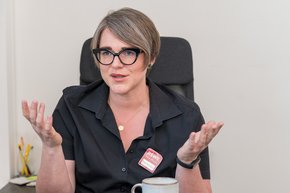
„I would do everything I did again in exactly the same way. I am still in agreement with the decision to become self-employed.“Alexandra Richber
Alexandra Richber on the topic of being a woman
"I don't worry about it, not even on the study trips for retailers, which are mostly attended by male colleagues. It doesn't bother me, and I don't have the feeling that I'm treated differently in my region or by the regional management because I'm a woman."

